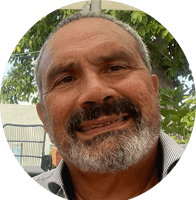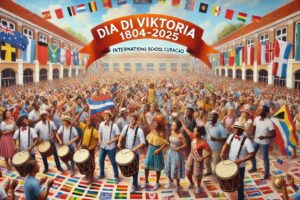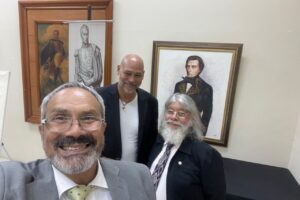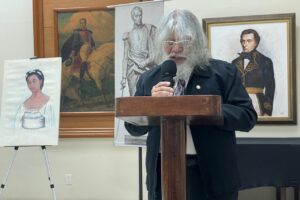
 On a Caribbean island called Curaçao, in the year 1800, a boy named Nicolás Danies Palm was born. His father, Gerard Danies, was a white merchant of French descent, and his mother, Catharina Palm, was a free woman of color. From an early age, Nicolás learned that in the world he lived in, skin color could decide a person’s fate. But he had a plan: to break the rules and rise as high as the most powerful men of his time.
On a Caribbean island called Curaçao, in the year 1800, a boy named Nicolás Danies Palm was born. His father, Gerard Danies, was a white merchant of French descent, and his mother, Catharina Palm, was a free woman of color. From an early age, Nicolás learned that in the world he lived in, skin color could decide a person’s fate. But he had a plan: to break the rules and rise as high as the most powerful men of his time.The Big Leap to New Granada
As Nicolás grew up, he became a shrewd and ambitious merchant. He knew that while he could make money in Curaçao, if he truly wanted power, he had to go where business was even bigger. So, in 1831, he packed his belongings, boarded a ship, and sailed to Riohacha, a port city on the coast of New Granada (present-day Colombia). There, along with other merchants from Curaçao, he began building his empire.
He traded in brazilwood, a type of tree with deep red wood used for dyes in Europe. He also exported hides and other goods, shipping cargo to New York, Liverpool, and Bordeaux. Nicolás was an exceptional businessman, but he had one problem: he was a mulatto, and society at the time was full of racial prejudice.
Nicolás’ Plan: Wealth and Strategic Marriages
Nicolás understood that being rich wasn’t enough to be accepted into the elite; he had to look like them. So, he devised a brilliant plan: marrying his children into powerful white families.
•His daughter Margarita married an astronomer and engineer from the influential Liévano family in Bogotá.
•His daughter Catalina married a Danish vice-consul.
•Mauricia married an Italian merchant.
•Elena, his granddaughter, married a businessman from Liverpool.
With each marriage, Nicolás built a network of power that brought him closer to the white elite of New Granada. Little by little, his family connections shielded him from the racism of the time.
The Big Challenge: Becoming a U.S. Consul
In 1859, Nicolás made his boldest move yet: he was appointed U.S. Consul in Riohacha.
This was a position of enormous prestige. A mulatto, born in Curaçao, representing a great power like the United States in New Granada. But not everyone agreed.
A U.S. vice-consul named Michael Constantine sent a letter to Washington stating:
— “That man cannot be a consul! He is Black, and he doesn’t even speak English properly.”
Nicolás knew he was in danger. If they removed him from his position, he would lose much of his influence. So, he did what he did best: he used his intelligence and connections to defend himself.
The Battle of Letters
From New York, his business partner Royal Phelps, a powerful white businessman, wrote to the U.S. government:
— “I do not know Danies personally, but I know he is a man of great reputation. He is not Black. He may have a touch of African or Indigenous blood, but his appearance is that of a white man.”
But the most surprising letter came from Pedro Alcántara Herrán, the New Granadian ambassador to the United States. Alcántara wrote:
— “I know Nicolás Danies Palm and can assure you that he is a gentleman of good reputation. And most importantly, a very distinguished family in Bogotá allowed their daughter to marry his son. If he had been Black, they would never have accepted that marriage!”
Nicolás’ Triumph
Thanks to these letters, the U.S. government stopped questioning his appointment, and Nicolás remained consul. His influence network worked perfectly: his wealth and family alliances saved him from the racism of the time.
For the rest of his life, he continued amassing wealth and consolidating his power, ensuring that his family remained well-positioned among the elites of New Granada and the Atlantic trading world. He achieved what few mulattos of his time could: becoming a respected and powerful man in a society that tried to keep him down.
The Lesson of Nicolás
Nicolás Danies Palm’s story shows us how intelligence, strategy, and economic power can change a person’s destiny, even in a world filled with prejudice. His life is a testament to how Afro-descendants in the Caribbean and Latin America fought for their place in history, defying racial and social barriers.

Tico Vos is a professional photographer, producer, and tourism specialist. He has been documenting the History, Culture, and News of Curaçao. This site is a documentation of the history of Manuel Carlos Piar.





